Features
Paradigm comes in two editions - Core and Advanced. The following features are available in both.
Hole Patterns
Import Existing Files
Next generation 3D tools for designing charges and timing for your blast design nyetovich
Custom Excel / CSV Import
Import data from XLSX and CSV files, specify where the data is defined and what units to read it as.
Hole Designer
Don't have hole data? Paradigm has a basic hole designer to create simple arrangements of holes.
Heat Maps
Recognise trends and inconsistencies by visualising any type of per-hole data using the heat map. Adjust the colour range to represent various different values and see how they change across a blast design.
View powder factor, hole length, flyrock range, drill penetration rates, and many more hole attributes.

Hole Patterns
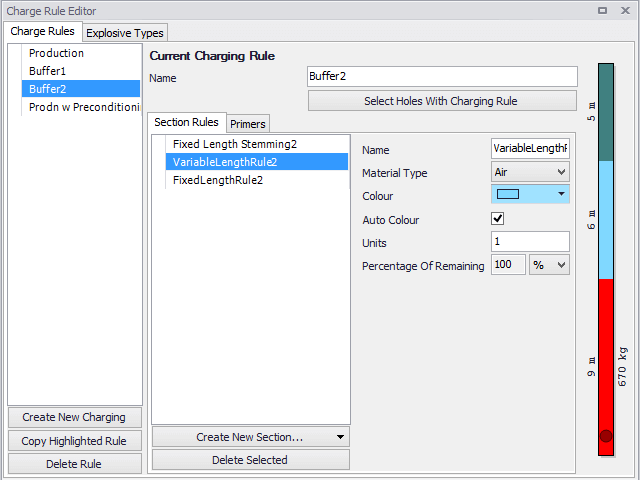
Design Charge Rules
Define charge rules with custom sections for air, stemming, explosives and primers, then apply them to holes.
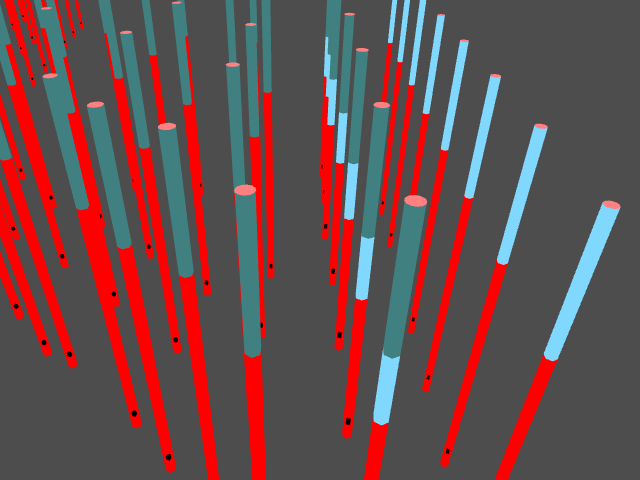
Import Charges
Import actual charge data and visualise charge rules in 3D view.
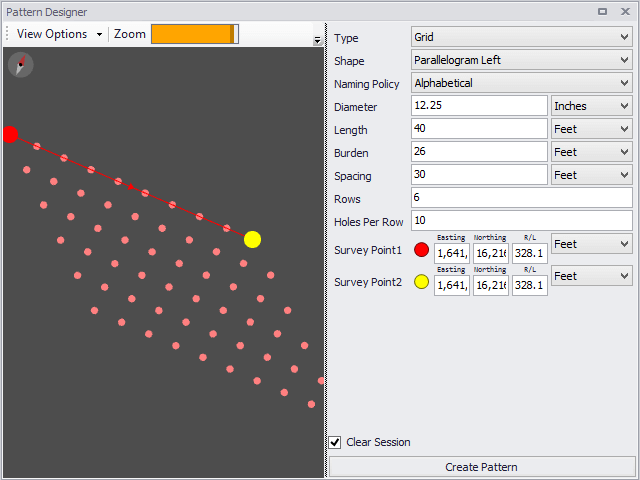
Relative Section Rules
Use one charge rule for holes with varying lengths. For example use fixed length section rules for stemming, and equally split the remaining length between air and explosive.
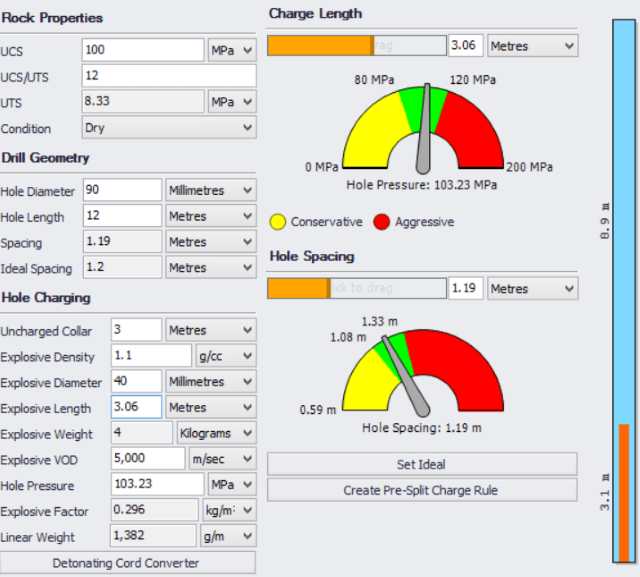
Pre-Split Designer
Design pre-split patterns to accommodate your drill size and desired spacing. Choose appropriate charges for the ideal pre-split outcome for your blasting scenario.
Timing Design
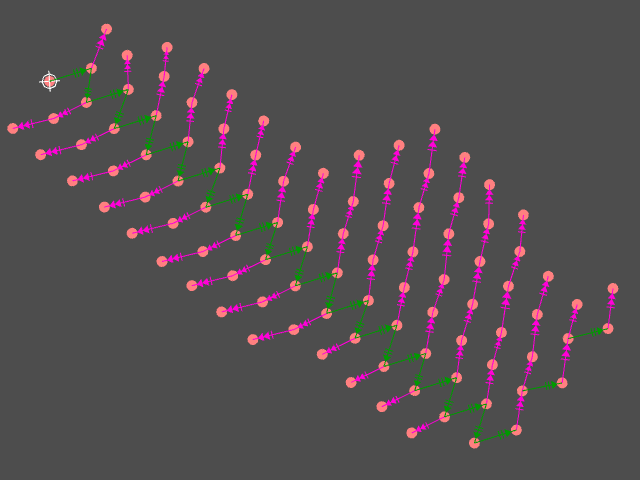
Tie-In Tools
Connect thousands of holes into simple or complex timing scenarios in just a few clicks. Design with electronic, or Non-Electric delays. Create your own delay library or use a pre-defined one.
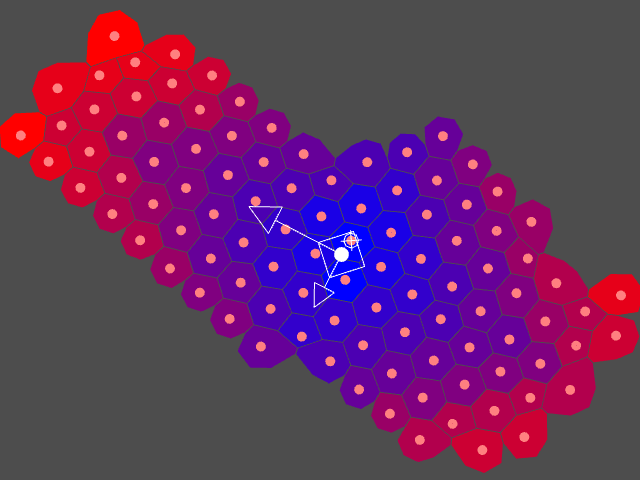
Electronic Pattern Tools
Create and customize geospatially compensated radial or echelon patterns with a single click. Or import existing timing designs from .xlsx or .csv
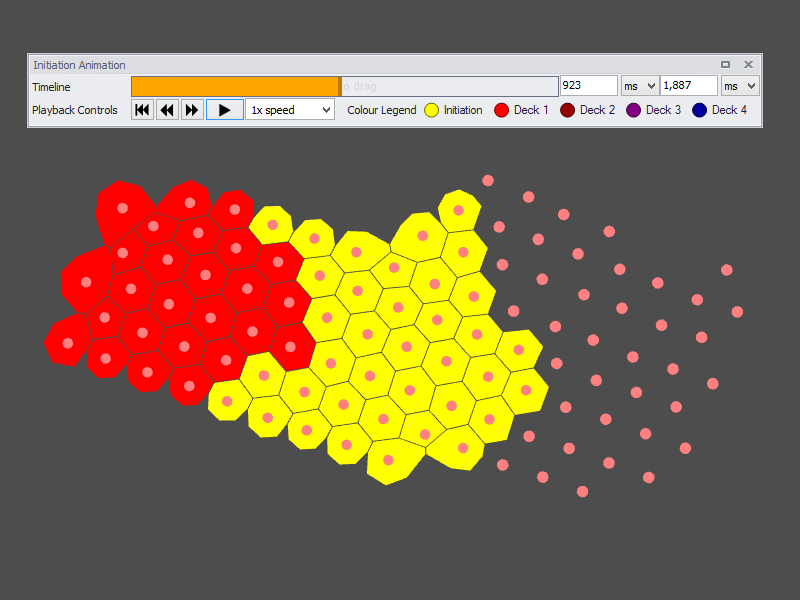
Initiation Animation
Visualise your blast initiation as an animation. Adjust the speed to help design your blast, and see different timing delays to different charge decks.
Surfaces and Contours
Import textured surface meshes from .obj files and surfaces meshes or contour lines from .dxf
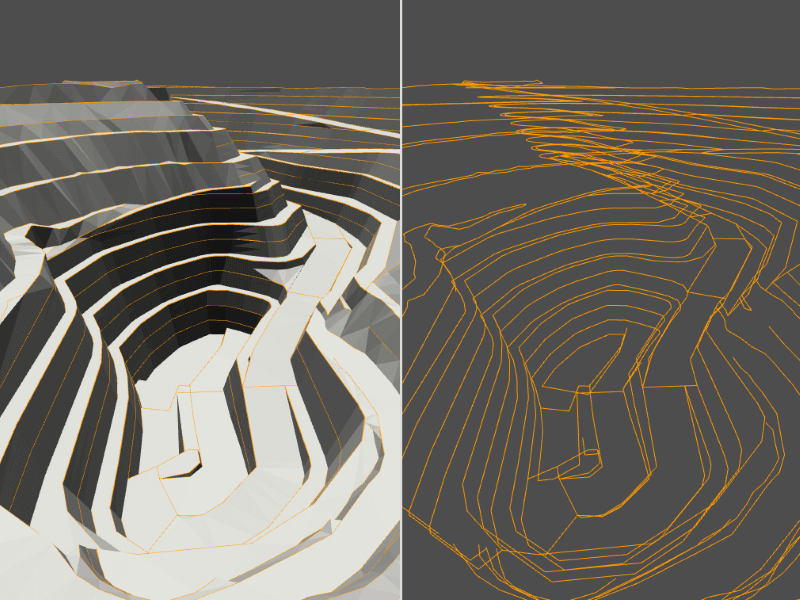
Timing Analysis
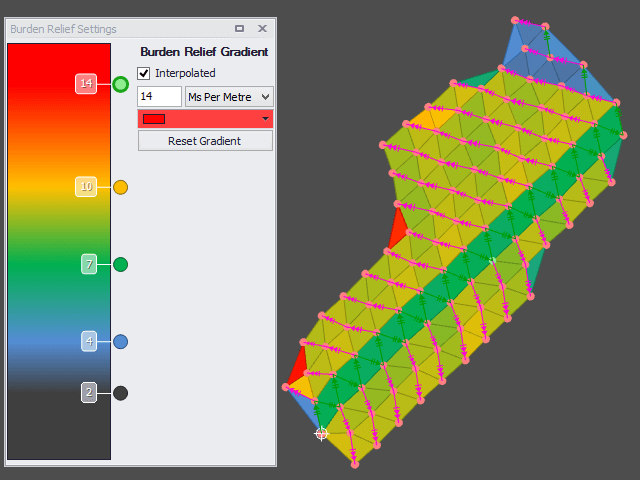
Burden Relief
Visualise how much burden relief is associated with your timing design.
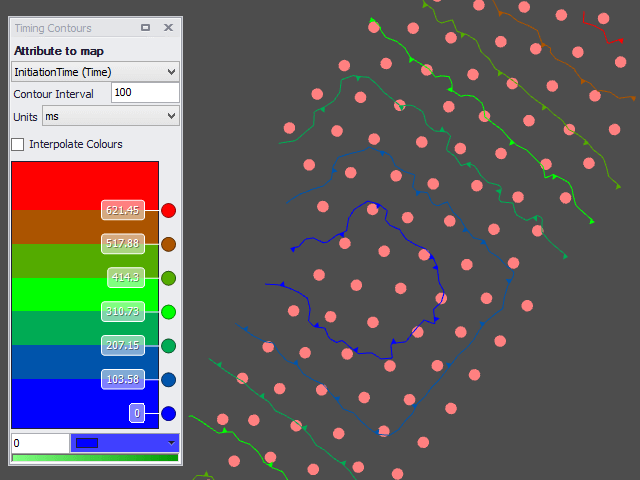
Timing Contours
Visualise timing contours and see patterns of the detonation front.
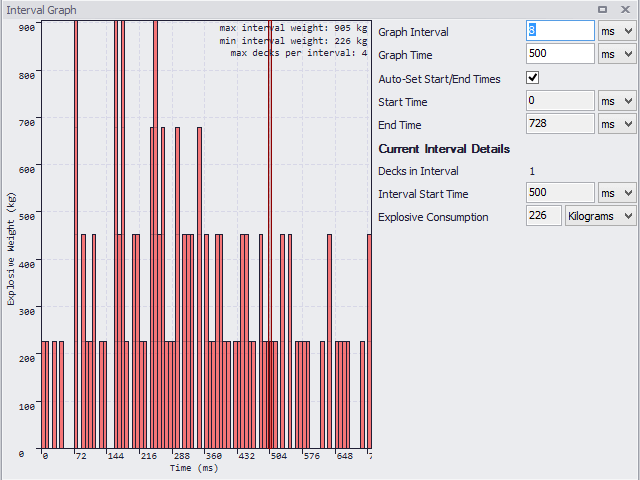
Interval Analysis
Analyse how much explosive will be detonated in each time interval.
Custom Reporting Tools
Create a print configuration for each design that gets saved with the file Have any number of pages each with a different position and scale. Create drill logs and other useful reports.
Design Scenarios
Charge Scenarios
Create multiple scenarios of charge specifications, and switch between them with the click of a button.
Timing Scenarios
Create multiple timing scenarios, compare them with ease.
Design vs. Actuals
Import your hole positions as they were designed then also as they were drilled and switch between them to compare differences and impact.
Miscellaneous Tools
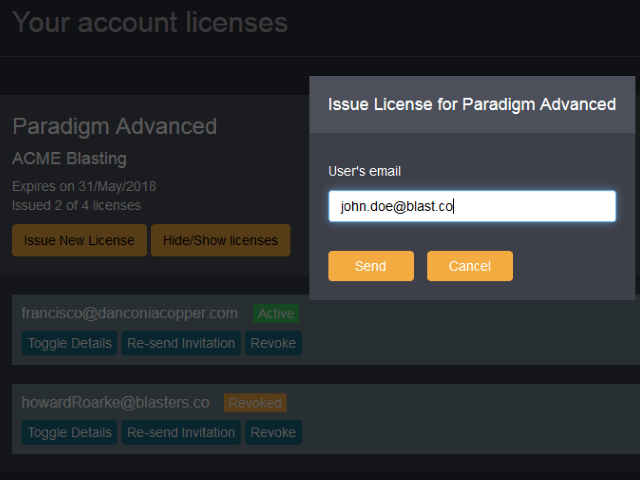
Self-Managed Licences
Log in to Paradigm's licence management website to distribute and manage licences yourself. No need to contact us to switch your licences between computers.
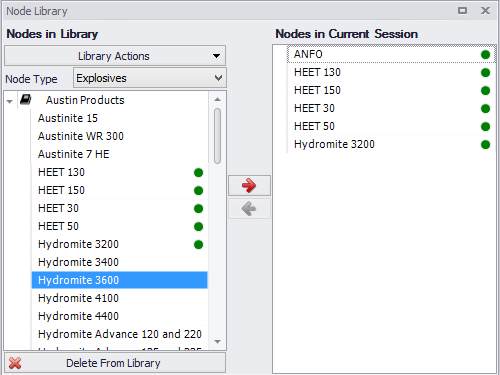
Node Library
After designing anything in one session, export it to the node library to re-use in other sessions.
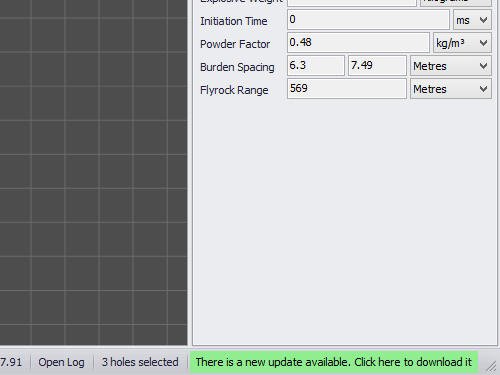
Automatic Updates
Receive update notifications and download directly from Paradigm as we release new versions regularly.
Advanced Features
The Advanced edition of Paradigm includes all of the following advanced predictive modelling features
Fragmentation Modelling
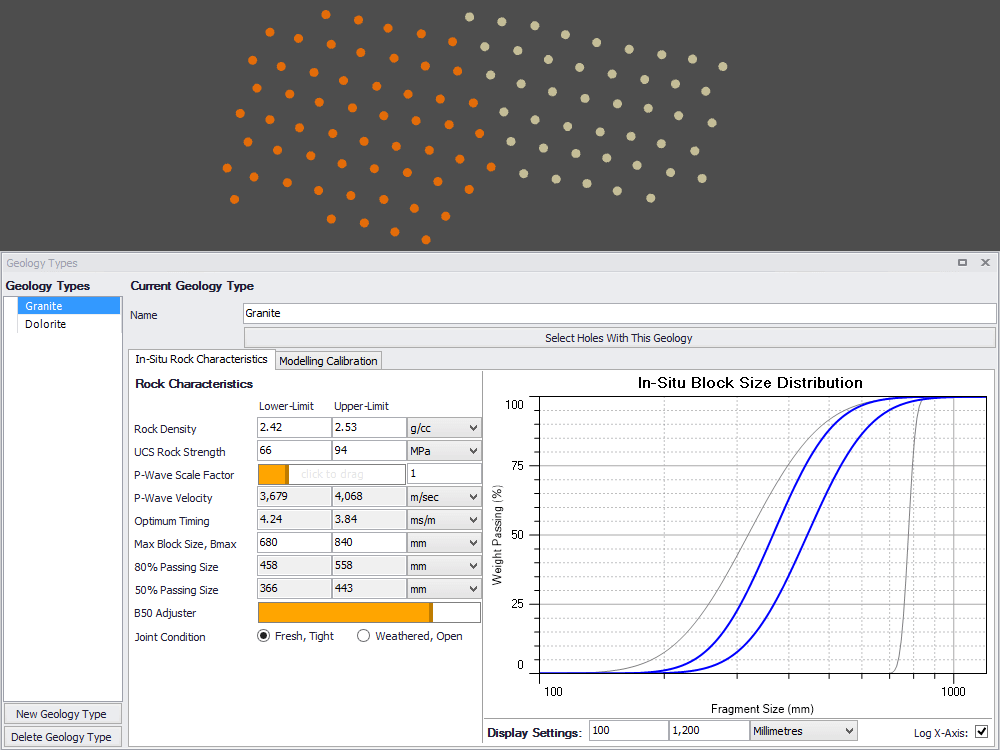
Geology Definition
Define the various geology characteristics of your blast, and even calibrate the models to align with rock characteristics from your measured data.
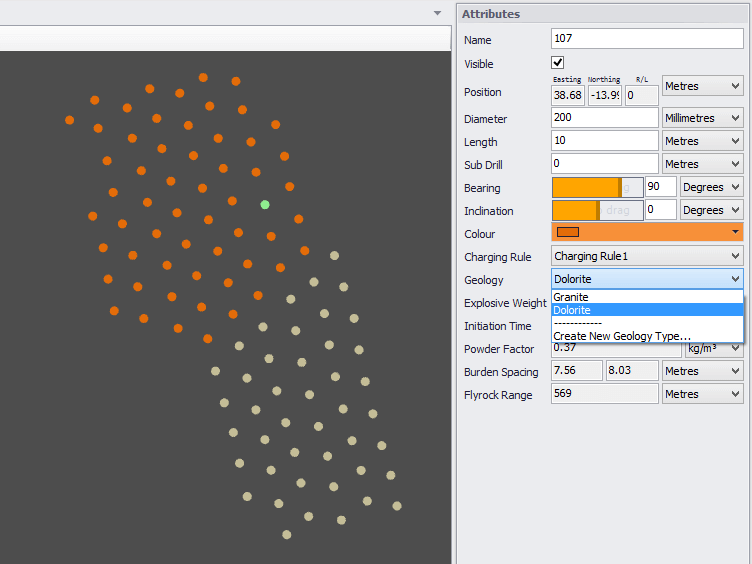
Assign Multiple Geologies
Assign geology types to different holes for the best fragmentation predictive modelling.
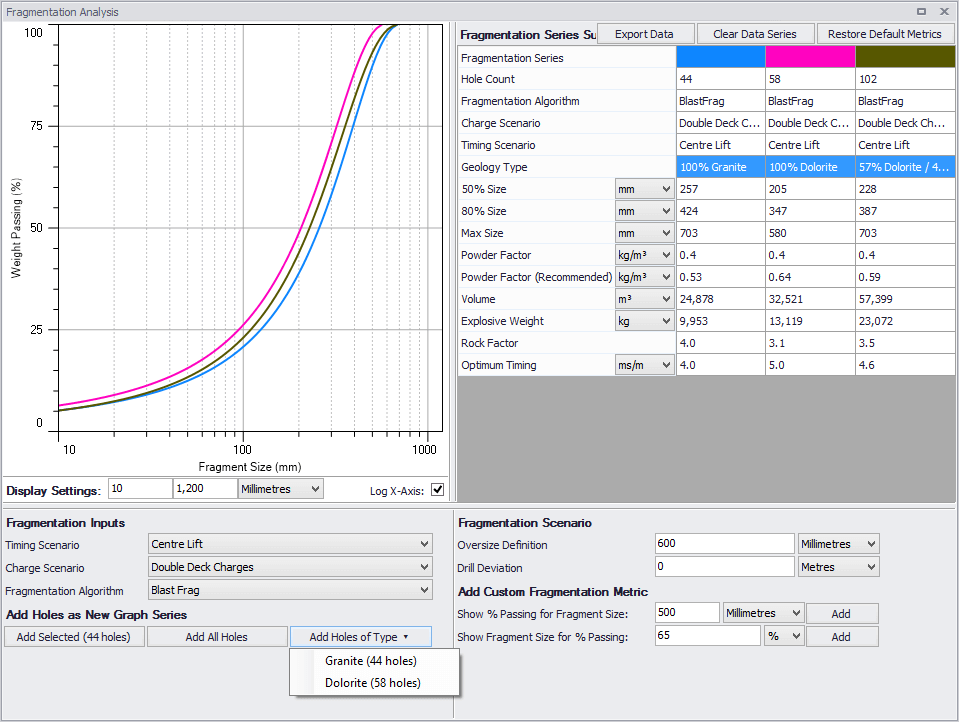
Fragmentation Analysis
Add groups of holes as series to a fragmentation analysis graph and table. Compare the output between different sets of holes, and even compare different timing scenarios.
Digital Elevation Mapping
Visualize elevations with a custom heatmap. Highlight a target elevation with a custom color key.
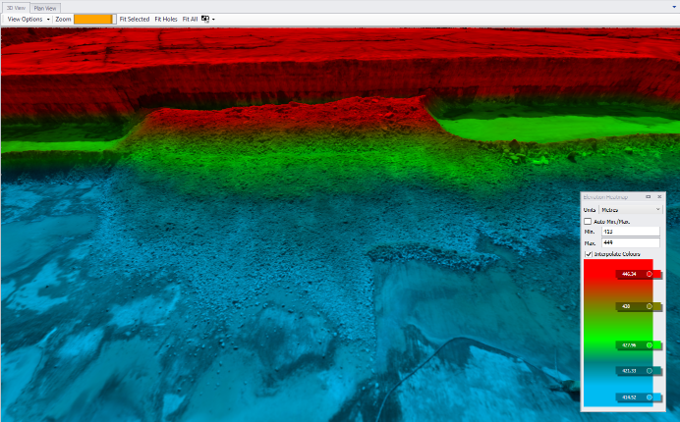
Damage Modelling
Heat Maps
Create sections to view damage profiles in places of interest. Display bench outlines or horizontal and veritcal profiles.
Detailed Section Analysis
Display a detailed section view for each damage profile. View damage probability graphs with bench analysis, or fragmentation index analysis for internal blast profiles
Multiple Algorithms
Display basic damage profiles independent of timing, or use Advanced algorithms to see the influence of timing. Display energy distribution too.
Flyrock Modelling
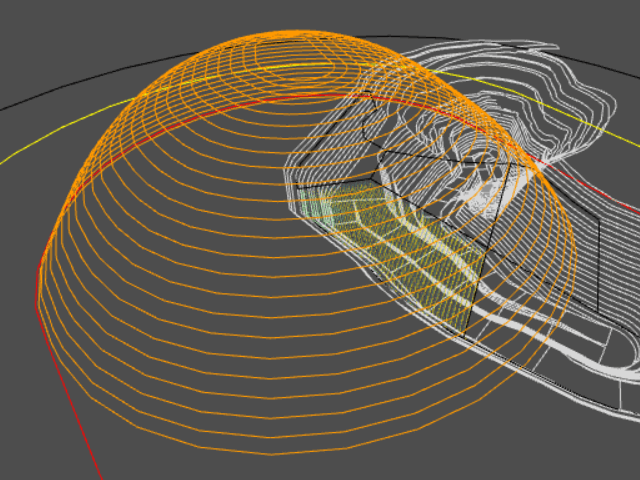
3D Shroud
Enable a 3D shroud of the potential flyrock range. Display the shroud for all holes, or for individually selected holes.
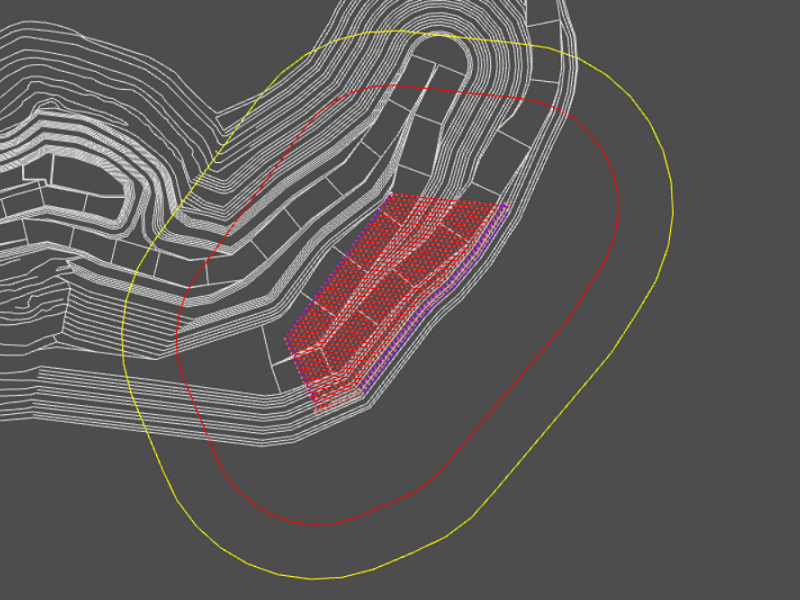
Safety Clearance Perimeter
Display the maximum theoretical flyrock distance based on your charge design, and determine a clearance zone perimeter with a factor of safety.
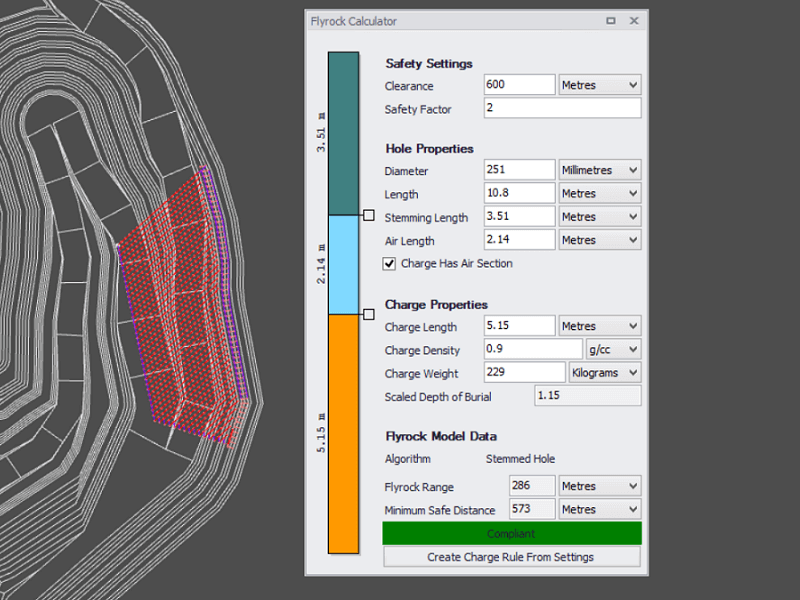
Compliant Charge Calculator
If you have limits on flyrock range, use the Flyrock Calculator to create a compliant charge design. Or use it to see the flyrock range for any charge design.
Muck Pile Footprint
Examine the expected extent of bulk rock movement. Change up blasting parameters to view the effects.
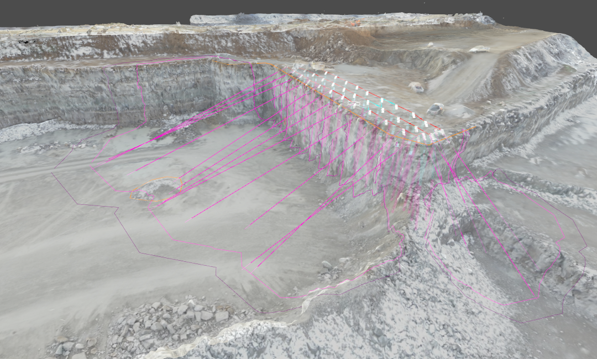
Overpressure Modelling
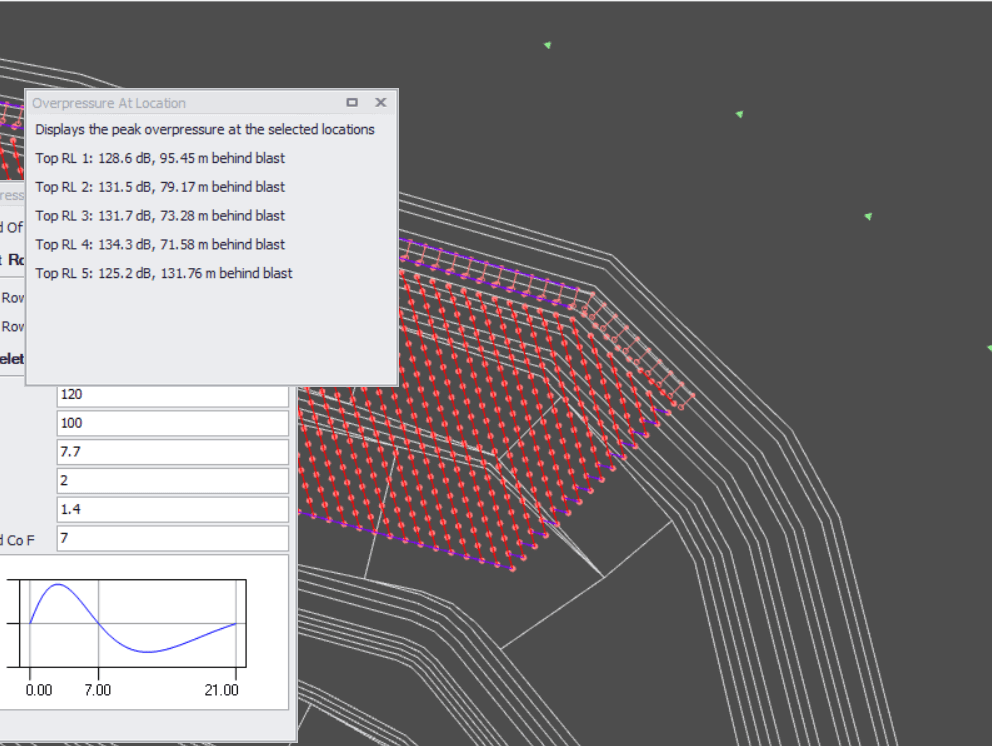
Predict Locational Overpressure
Predict overpressure levels at various points of interest around a blast. Examine the effects or a parameter change by changing timing or charge scenarios.
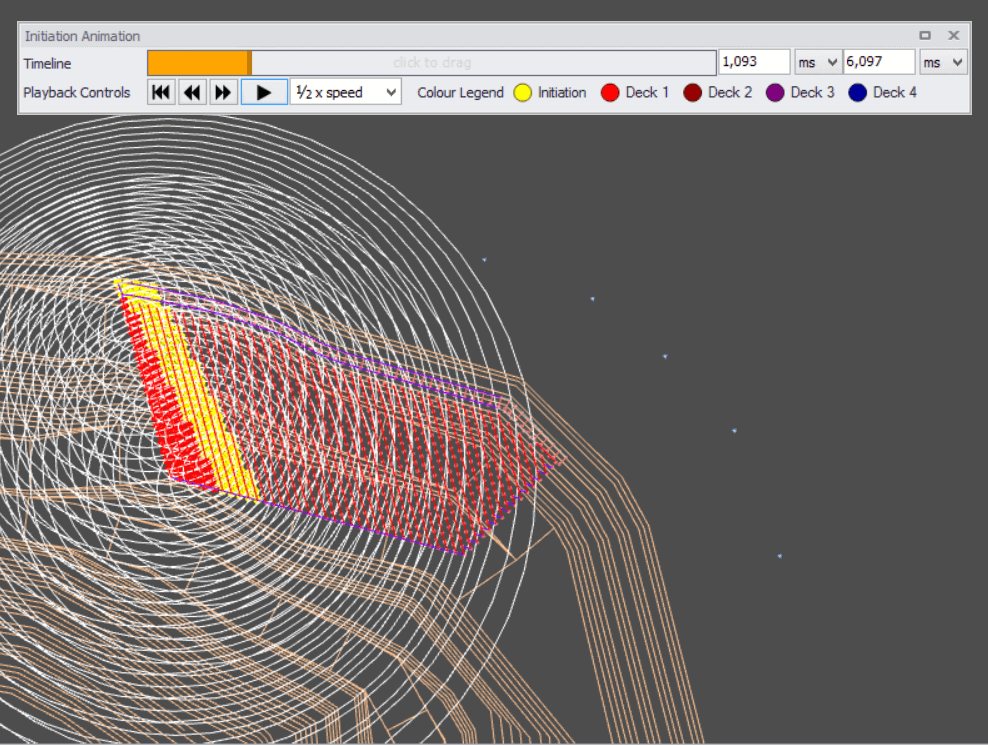
Visualize Overpressure Directionality
See overpressure rings generated by your blast in real-time with the overpressure animation tool.
Vibration Contour Modelling
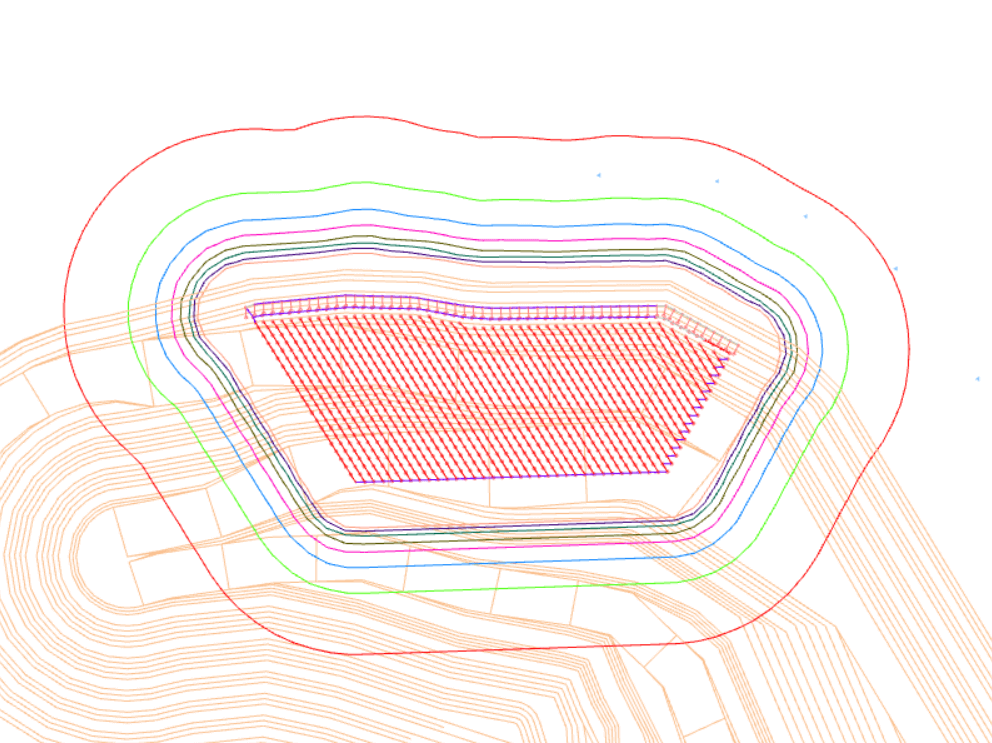
Vibration Contours
Display vibration contour profiles for your blast design. Pick vibration levels to display for each contour line.
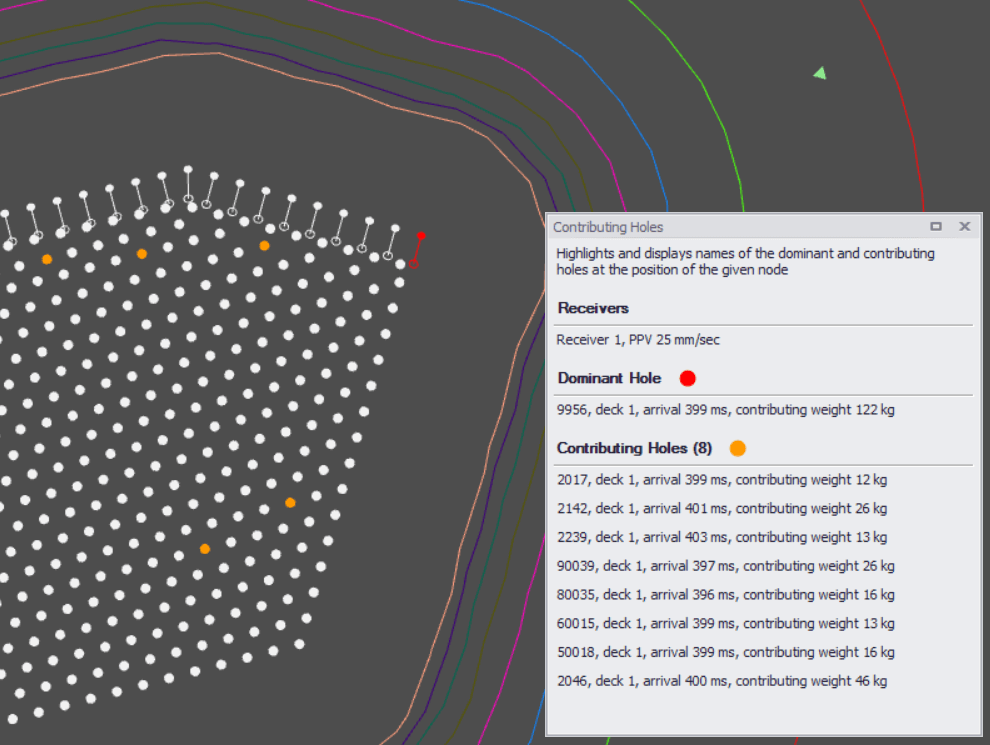
Determine Contributing Holes
Identify holes that contribute significant vibration to a specified location.
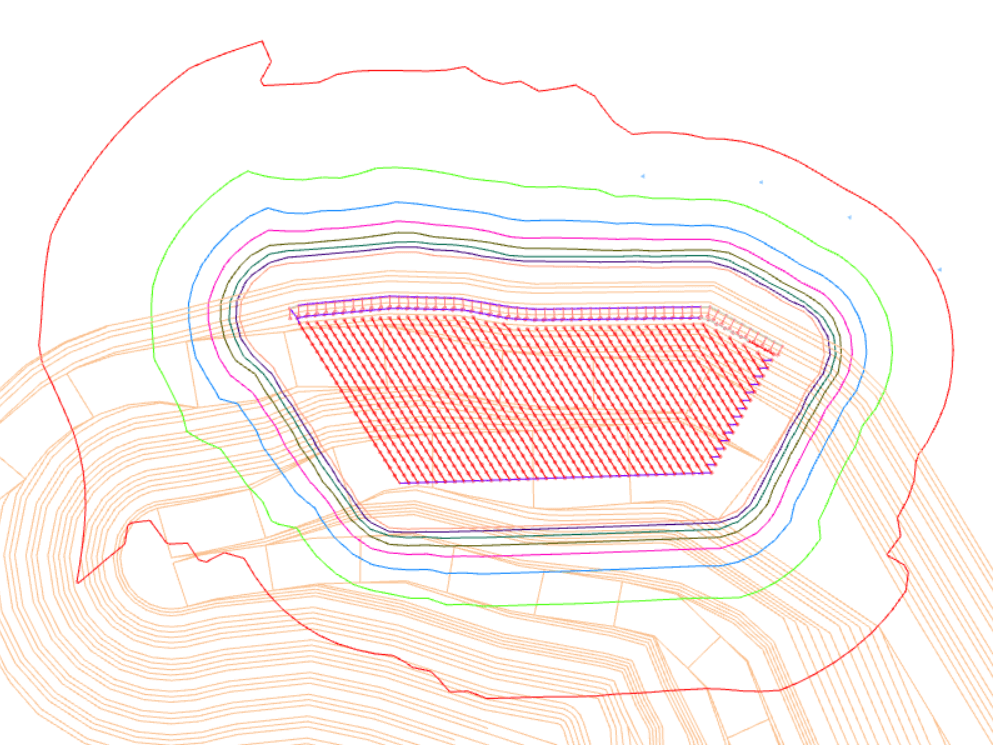
Timing Dependent
Choose whether to consider timing in the vibration contours, allowing you to see the impact of your timing design compared to the theoretical ideal.
Timing Optimisation for Vibration Control
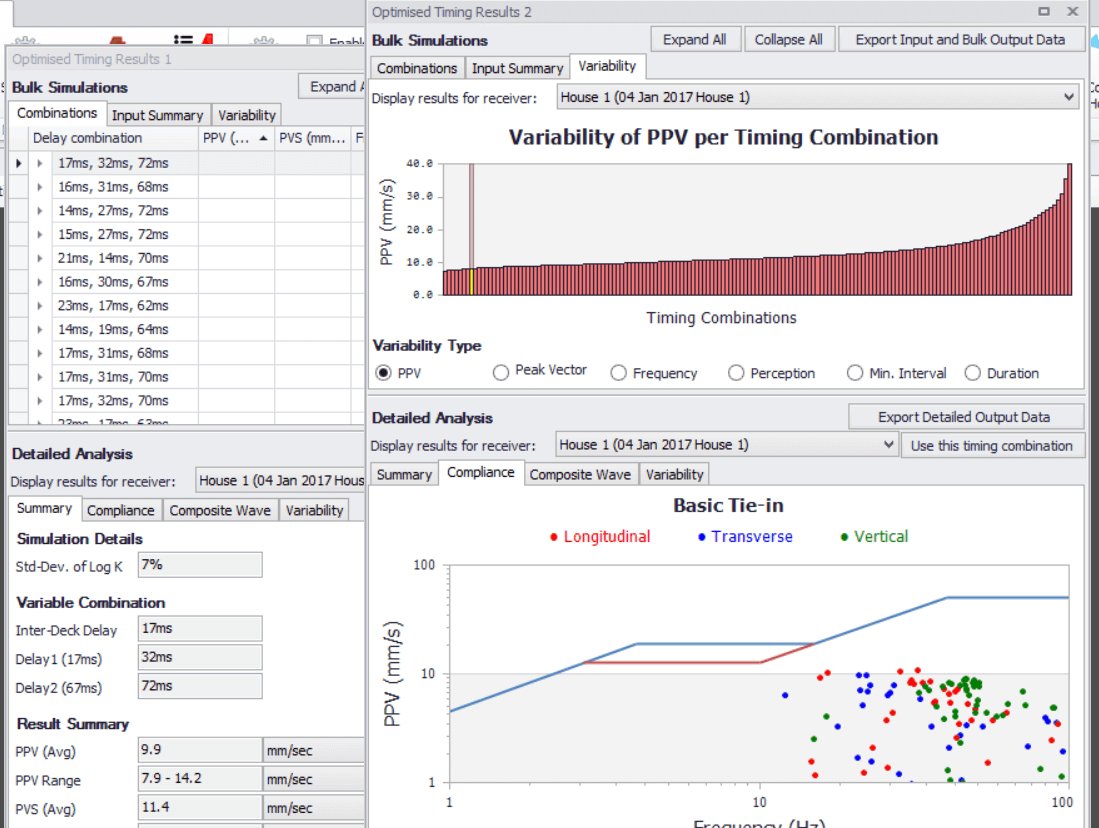
Optimum Timing Analysis
Simulate vibration at multiple far-field sensitive locations, such as nearby houses, and optimise your timing design to minimize vibration at those locations.
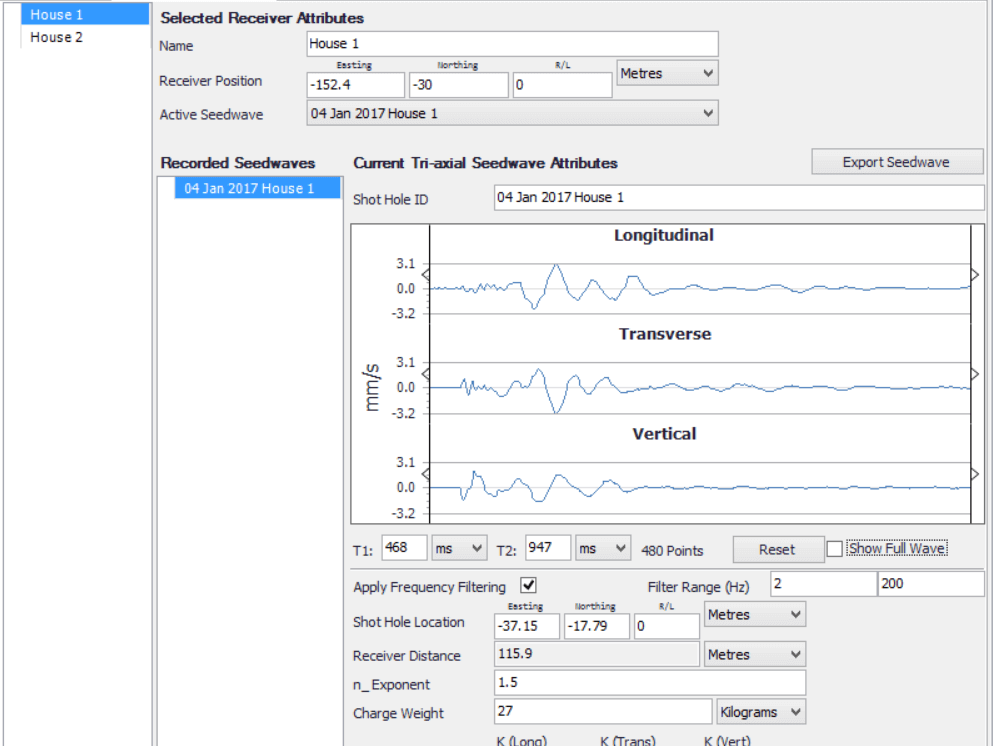
Receiver Configuration
Set up physical geophone receivers at sensitive locations and configure them for modelling with the Timing Optimiser.
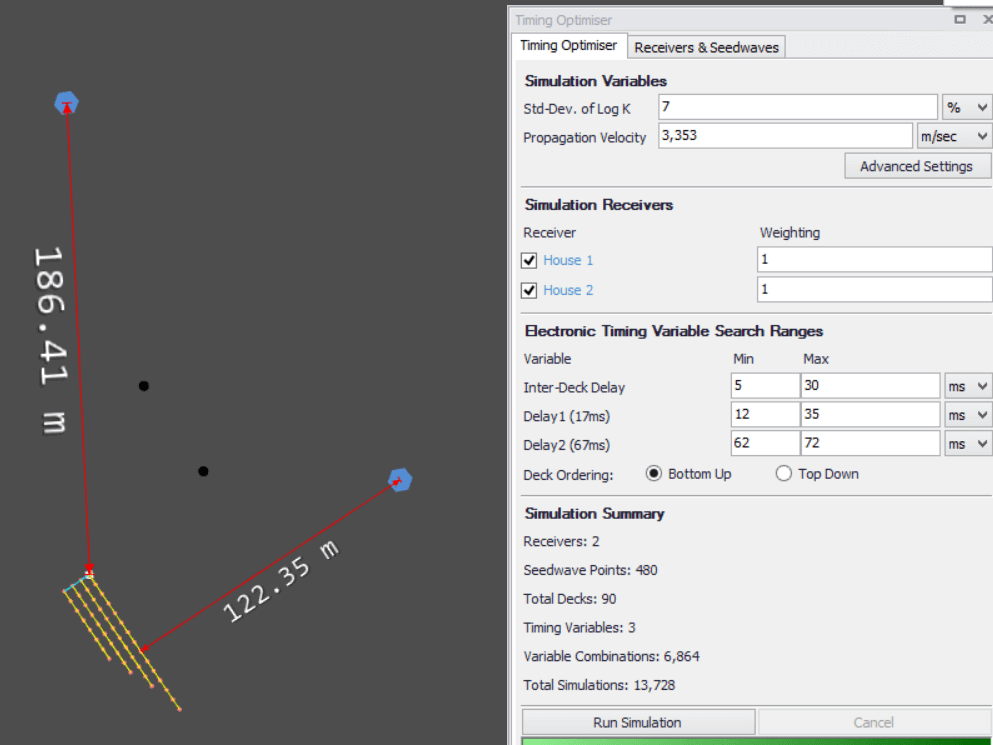
Multiple Receiver Locations
Find the optimum timing combination for electronic designs with tie-ins or radial designs to minimize vibration at multiple locations. Compare multiple timing designs against each other.











